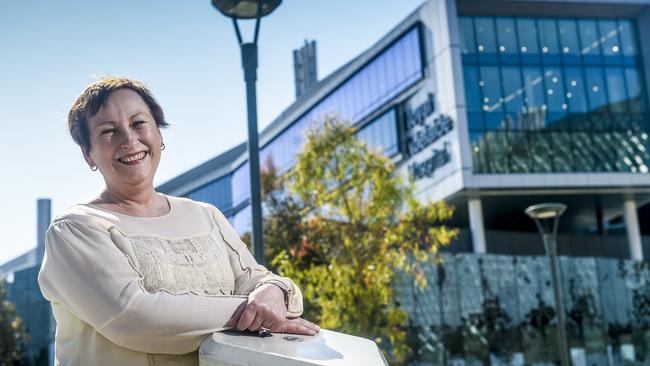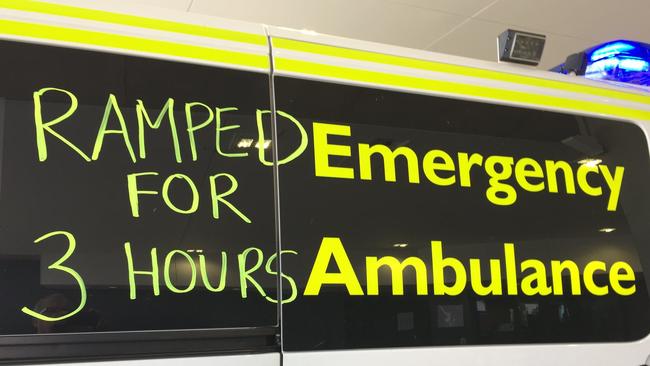RAH, QEH doctors blast bosses over ramping ‘fast-track’ fix
Management says fast-tracking discharges will open the equivalent of an extra ward. Doctors say they’re losing confidence in their leaders.
SA News
Don't miss out on the headlines from SA News. Followed categories will be added to My News.
Relations between doctors and hospital management have soured to a new low, with a health union saying clinicians are under “attack” and many members “are questioning whether they can have confidence in the administration’s ability to work with the medical workforce”.
It follows a directive by Central Adelaide Local Health Network (CALHN) chief executive Lesley Dwyer ordering consultants to finish rounds by 10.30am at the Royal Adelaide and Queen Elizabeth hospitals.
The order, which took the union by surprise, comes amid ongoing record ambulance ramping and growing political pressure on the state government, which came to power promising to fix the health system.

Ms Dwyer’s order indicates finishing rounds by 10.30am would fast-track patient discharge, free up beds for people stuck in emergency departments and swiftly ease ramping.
A letter from Ms Dwyer to the SA Salaried Medical Officers Association, sent after meetings in the SA Employment Tribunal last week, says up to 30 patients are stuck in the health network’s EDs at any one time.
She said finishing rounds by 10.30am, instead of late afternoon, would create the equivalent of an extra ward.
“CALHN data suggests over the last few years we have been discharging most of our patients from midafternoon to the early evening,” her letter states. “Indeed, only around 7 per cent of patients discharged each day are in fact discharged by 10.30am.”

However, doctors say the order to have rounds finished by 10.30am, seven days a week, with a target of 95 per cent compliance within three months, would put patients at risk by rushing through their checks.
Ms Dwyer now has agreed to consult with doctors and the union before the issue goes back to the tribunal in a fortnight.
She is adamant the order is lawful but the SA Salaried Medical Officers Association says it breaches industrial agreements.
“I emphasise that patient safety, staff safety and the patient experience lie at the heart of this discharge rounding initiative,” Ms Dwyer wrote to the union. “CALHN is not asking doctors to change the way in which they work.”
In an update to members, the union’s deputy chief industrial officer, Ed Grue, said ramping had been a growing problem for a decade, making “the current crisis entirely predictable”.
“Successive governments of both political persuasions have failed to make the investments necessary to ensure the public hospital system has the capacity to meet community demand,” he wrote.
“Now, at a time when the employer should be doing everything in its power to attract and retain medical staff in SA’s public hospitals and health system, CALHN attacks its medical workforce, despite the fact they have continued to go above and beyond to provide quality care in a very challenging environment.”



